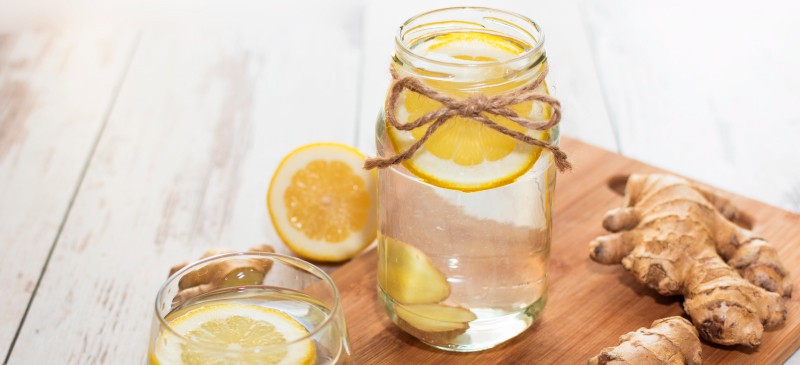This Dr. Axe content is medically reviewed or fact checked to ensure factually accurate information.
With strict editorial sourcing guidelines, we only link to academic research institutions, reputable media sites and, when research is available, medically peer-reviewed studies. Note that the numbers in parentheses (1, 2, etc.) are clickable links to these studies.
The information in our articles is NOT intended to replace a one-on-one relationship with a qualified health care professional and is not intended as medical advice.
This article is based on scientific evidence, written by experts and fact checked by our trained editorial staff. Note that the numbers in parentheses (1, 2, etc.) are clickable links to medically peer-reviewed studies.
Our team includes licensed nutritionists and dietitians, certified health education specialists, as well as certified strength and conditioning specialists, personal trainers and corrective exercise specialists. Our team aims to be not only thorough with its research, but also objective and unbiased.
The information in our articles is NOT intended to replace a one-on-one relationship with a qualified health care professional and is not intended as medical advice.
Ginger Water Benefits + How to Make It
October 4, 2021

Hot ginger tea and cool ginger water share many of the same benefits and uses. Both are typically made with ginger root and contain a number of anti-inflammatory and antioxidant compounds that support the digestive, immune and cardiovascular systems.
In fact, these two beverages are basically the same thing, only they are typically consumed at different temperatures.
In Indian, Japanese, Chinese and other cuisines, ginger has been used for thousands of years to promote healthy digestion and nutrient absorption. It’s also the key ingredient in some folk remedies, such as herbal teas, lozenges and ginger water, that are intended to help treat stomach bloating, abdominal pain and nausea.
Benefits
Ginger (Zingiber officinale) is a root that can be consumed fresh, dried or ground into powder. To make ginger water, the fresh root is usually sliced, zested or grated. (Ginger can also be juiced, pickled or infused into beverages.)
Most people have tasted ginger beverages at some point, such as ginger ale or ginger beer, but these are usually highly sweetened and contain almost no antioxidants and anti-inflammatory compounds found in real ginger.
Ginger naturally has a sharp, peppery flavor, so while it might taste better when mixed with sugar, it’s healthiest when you leave the sweeteners out (or use a small amount of honey).
Studies show that ginger contains many valuable compounds like gingerol, shogaol, paradol and zingerone. Its gingerol content is especially valuable, making it one of the top anti-inflammatory herbs and spices.
Ginger root also contains small amounts of potassium, copper, manganese, magnesium, choline and vitamin C.
What happens if you drink ginger every day? Here are some of the benefits of consuming this ancient beverage:
1. Can Help Decrease Nausea
Ginger water and tea are both considered natural remedies for nausea, indigestion, ulcers, motion sickness, irritable bowel syndrome and morning sickness. They also can be given to patients receiving chemotherapy treatments who are prone to severe nausea or pregnant women dealing with morning sickness.
Other reasons to drink ginger water include to help reduce bloating and potentially constipation and intestinal sensitivity due to IBS, since ginger promotes gastric motility and may speed of stomach emptying — plus the water is hydrating, which helps with elimination.
2. Supports a Strong Immune System
Ginger root has been shown to possess antibacterial, antifungal and antiviral properties.
Additionally, this plant’s protective compounds, including gingerol, shogaol and paradols, help fight oxidative stress, free radicals and inflammation that can contribute to a number of health conditions.
Studies have found that consuming ginger water and tea may help reduce symptoms related to:
- colds
- allergies
- respiratory infections
- and possibly even heart disease, neurodegenerative diseases and some types of cancer
3. Promotes Healthy Blood Sugar and Cholesterol Levels
According to some research, ginger has the ability to help you maintain normal blood sugar levels and potentially reduce the risk for insulin resistance.
It’s also associated with support for cardiovascular health and reduced total, LDL “bad” cholesterol and triglyceride levels.
Some reports have also demonstrated that ginger, especially when consumed as a beverage, may help decrease your appetite and potentially have anti-obesity effects. For example, one 2020 study concluded that ginger water helped lower body weight gain, likely because of how it affects energy metabolizing proteins.
4. May Dull Pain and Inflammation
Because it contains anti-inflammatory compounds, ginger has been shown to help alleviate muscle and joint pain, menstrual cramps, and discomfort caused by osteoarthritis or exercise-induced muscle strain.
Risks and Side Effects
What are possible side effects of ginger? While ginger water is generally well-tolerated and safe for most people to consume, it’s possible to experience mild side effects like heartburn, diarrhea and stomach pain when beginning to consume it.
Some people may also experience an allergic reaction to ginger in rare cases. Stop consuming ginger water, tea and supplements if you experience hives, itching or swelling.
Don’t give ginger beverages or extracts to children under the age of 2 unless you’ve cleared it with your doctor.
For best results, it’s recommended to stick to one to three cups of ginger water per day to maximize the benefits and minimize the risk of adverse side effects.
How to Make Ginger Water
Follow this recipe to make two servings of ginger water.
INGREDIENTS:
- 1 2-inch piece fresh ginger root (peel and rinse the root before using it)
- 2 cups water
- 1 large lemon (optional)
- 1 dash ground turmeric, fresh black pepper and cayenne pepper (all optional)
DIRECTIONS:
- First rinse, peel and slice the ginger into small chunks.
- Bring the water to a boil, then add the ginger to each cup and top with water. Give the ginger several minutes to steep before removing.
- If using the other ingredients, also add sliced lemon in each cup or squeeze a half a lemon into each.
- Now add black pepper, turmeric and cayenne.
- Either enjoy warm or chill in the refrigerator. For the most benefits drink within about one day/24 hours.
Reasons to Add Fresh Lemon
What does lemon and ginger water do to your body? Like ginger, fresh lemon juice can support digestive processes and detoxification. Some people find that lemon juice helps curb indigestion and bloating.
Other beneficial ingredients you can add to ginger water for extra health perks include:
- Turmeric — This root contains curcumin, which has anti-inflammatory and antioxidant properties. It can help reduce pain, support digestion and more.
- Raw honey — Not only does honey improve the taste, but it also provides enzymes, vitamins and minerals that can help fight cold and flu symptoms as well as allergies.
- Cayenne pepper — Cayenne supplies you with the compound capsaicin, which can be beneficial for your metabolism and may reduce stomach pains and discomfort.
Interested in making up wellness shots instead, with some of the same ingredients? Try ginger shots.
Dosage
A general recommendation is to consume about one to three cups of ginger water or ginger tea per day. This equates to having about one teaspoon of powdered ginger or one to two teaspoons of grated raw ginger daily.
When should you drink ginger water? Whenever you prefer, such has first thing in the morning to become more hydrated or between meals to settle your stomach.
Ginger extract itself (such as supplements containing the root) should not be consumed in dosages of more three to four grams per day.
Conclusion
- Ginger is a beneficial root that contains protective compounds, including gingerol, which is responsible for its antioxidant and anti-inflammatory effects.
- Rather than drinking sugary ginger drinks such as soda and beer, try making your own ginger water at home using the fresh root plus other healthy ingredients.
- Ginger water benefits include reduced nausea, improved immunity, better brain and digestive health, lower cholesterol and blood sugar levels, and pain relief.
- Stick to one to three cups of ginger water or ginger tea daily.










